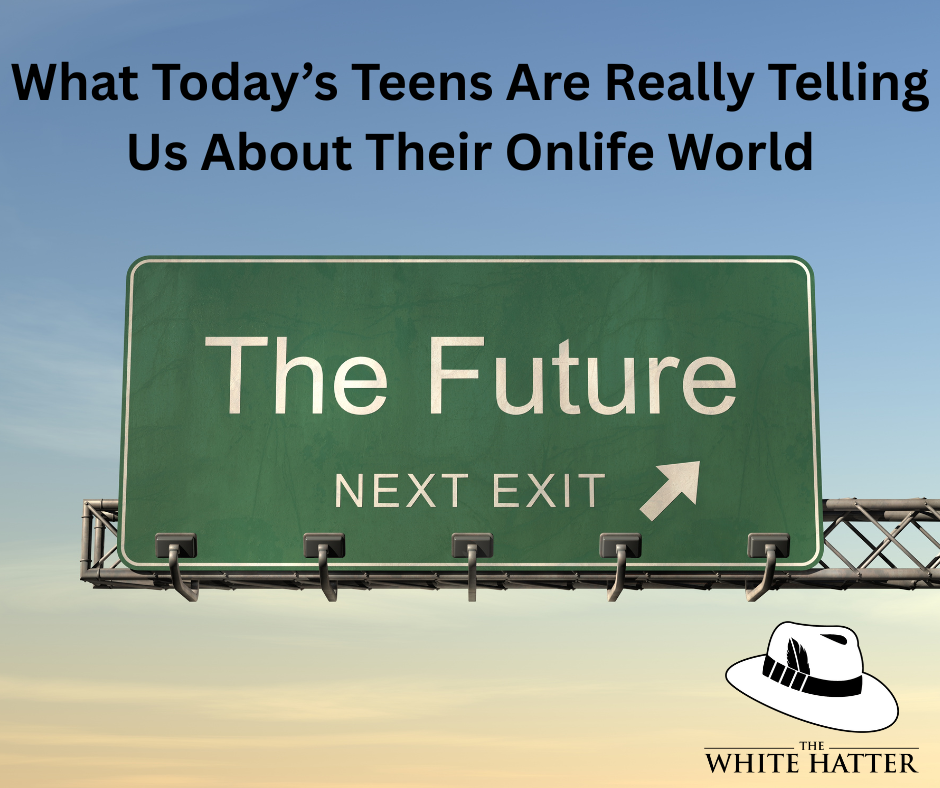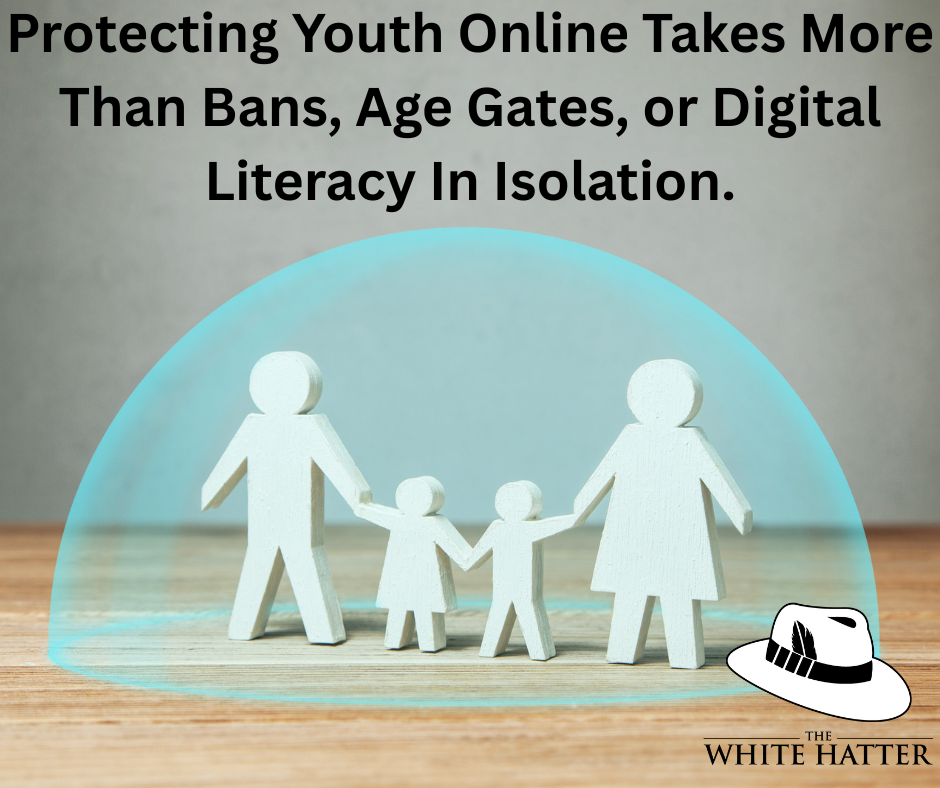Teens, Social Media, & Economic | Career Success
- The White Hatter

- Sep 28, 2025
- 4 min read

For generations, the “formula” for success seemed straightforward:
Good grades → post-secondary degree → stable, high-value job.
But today, that formula feels far less guaranteed. Public sentiment is shifting, with increasing skepticism about the return on investment of higher education. As Forbes recently noted, “Many College Degrees Are Now Useless,” pointing to skyrocketing costs, diminishing returns, and the fact that some employers are eliminating degree requirements (1).
For teens preparing to enter the workforce, this raises a pressing question:
If a degree isn’t the golden ticket anymore, then what is?
Networking and Relationships Over Knowledge and Merit?
One thought-provoking Reddit discussion reflects a growing belief: getting a good job may be “more about who you know rather than experience” (2). While that may sound cynical, it resonates with many workers who openly question whether their supervisors earned their positions through competence or simply through connections (3).
Research supports this shift. Even Ivy League institutions, long considered the pinnacle of academic achievement, are prized as much for their networking opportunities as for their education. As one Forbes analysis put it, what makes Ivy League degrees valuable isn’t just the academics, but access to influential and exclusive networks (4).
Teens are not forming these views in a vacuum. They’re growing up in a world where high-profile stories of favouritism dominate the news cycles:
Academic fraud scandals, such as the University of North Carolina’s 18-year scheme to keep athletes academically eligible (5)
Political favouritism, such as Canada’s WE Charity scandal, where government ties raised questions of fairness (6)
Procurement controversies, like the ArriveCAN app (7)
Broader concerns and optics around government consulting contracts awarded to seemingly political insiders without fair public competition (8)
When youth repeatedly see stories of shortcuts, favouritism, and insider deals, it’s no wonder many grow skeptical about whether “merit” really drives success. Since 2008, The White Hatter team has been working in schools, teaching online safety and even developing programs around online student success planning. We hear from teens about their concerns with the job market, the anxiety of competition for good jobs, and the uncertain value of a degree.
We often hear the advice to “diversify investments.” Perhaps the same logic applies to career pathways. If putting all your eggs in the academic basket no longer guarantees returns, teens may need to approach success planning differently. Education is still valuable; it provides knowledge, critical thinking, and credentials, but it’s increasingly just one piece of the puzzle. Skills, adaptability, creativity, and networks matter just as much.
Where Social Media Fits In
When used purely for entertainment, social media can be a distraction. But when approached strategically, it becomes a powerful networking and opportunity tool: one that can bypass traditional gatekeepers.
Teens can begin building professional credibility early by sharing projects, achievements, and insights.
Allow direct connection with thought leaders, companies, and professional communities.
Build platforms to showcase skills, hobbies, and projects to global audiences.
Social platforms make it possible to connect with like-minded peers, organize campaigns, and collaborate on causes.
In many ways, social media democratizes access to networks that once came only through elite universities or insider circles. It can also create entirely new grassroots communities where members support and uplift one another. In a sense, this mirrors political parties. Ideally, public leaders (regardless of affiliation) are meant to serve the interests of everyone...[dramatic pause].... In practice, however, preference toward one’s group or affiliation often emerges. It is a very human instinct to favour and associate with those who are most similar to ourselves.
The road to economic success for today’s teens is no longer formulaic. It’s not just about grades, degrees, or climbing a single, linear ladder. Instead, it’s about:
Building transferable skills
Cultivating meaningful connections
Demonstrating value across multiple channels
staying adaptable in a rapidly shifting economy
Social media (when used intentionally) can be a key part of this toolkit. For the next generation, future success may depend even more on who knows you and what you can show them.
In today’s job market, the hiring process is increasingly controlled by artificial intelligence. Recruiters themselves have admitted struggling to keep up with AI-generated applications, while job seekers often find their resumes filtered out by automated screening tools before a human ever sees them.
Amidst this AI slop, one factor continues to cut through the noise: personal connections. Several stories highlight how referrals and networking often outweigh the formal application process.
Take, for example, a case reported by The Wall Street Journal. A tech recruiter posted a position that drew 983 applicants through the standard online portal. Yet, the person ultimately hired wasn’t one of those 983. Instead, they came in via a referral, one of six forwarded directly to the recruiter by someone they trusted. That single referral bypassed the AI-driven funnel entirely.
Similarly, in a personal account shared on LinkedIn, an individual who was laid off secured three job offers within six weeks. Their success, they explained, was not because of cold applications but largely due to networking, referrals, and maintaining visibility within their professional community .
Digital Food For Thought
The White Hatter
Facts Not Fear, Facts Not Emotions, Enlighten Not Frighten, Know Tech Not No Tech
References
[1] Forbes. (2025, April 15). Many college degrees are now useless: Here’s what’s worth your money. Forbes. https://www.forbes.com/sites/cherylrobinson/2025/04/15/many-college-degrees-are-now-useless-heres-whats-worth-your-money/
[2] Reddit. (2023, August 31). Is getting a good job more about who you know? Reddit. https://www.reddit.com/r/jobs/comments/15y5g9d/anyone_else_think_its_becoming_more_about_who_you/
[3] Reddit. (2025, July 7). My new supervisor is not qualified or competent. Reddit. https://www.reddit.com/r/CanadaPublicServants/comments/1ge4bna/my_new_supervisor_is_not_qualified_or_competent/
[4] Forbes. (2024, February 10). What makes Ivy League degrees so valuable? Forbes. https://www.forbes.com/sites/quora/2024/02/10/what-makes-ivy-league-degrees-so-valuable/
[5] CNN. (2014, October 22). UNC academic fraud scandal. CNN. https://www.cnn.com/2014/10/22/us/unc-report-academic-fraud/index.html
[6] WE Charity scandal. In Wikipedia. Retrieved September 25, 2025, from https://en.wikipedia.org/wiki/WE_Charity_scandal
[7] Office of the Auditor General of Canada. (2024, February). ArriveCAN special report. https://www.oag-bvg.gc.ca/internet/docs/parl_oag_202402_01_e.pdf
[8] CBC News. (2024, February 16). Procurement ombud on McKinsey contracting. CBC. https://www.cbc.ca/news/politics/procurement-ombud-mckinsey-contracting-1.7174454
[9] The Week. (2024, December 29). Deepfakes and impostors: The brave new world of AI jobseeking. The Week. https://theweek.com/tech/deepfakes-and-impostors-the-brave-new-world-of-ai-jobseeking
[10] Peters, A. (2024, October 21). Landing a job is all about who you know (again). The Wall Street Journal. https://www.wsj.com/lifestyle/careers/networking-job-search-c6f06b0c
[11] Lopez, B. (2024, December 11). Hiring, networking, jobs [Post]. LinkedIn. https://www.linkedin.com/posts/brandonlopeztv_hiring-networking-jobs-activity-7361086672890937344-pqMq/














